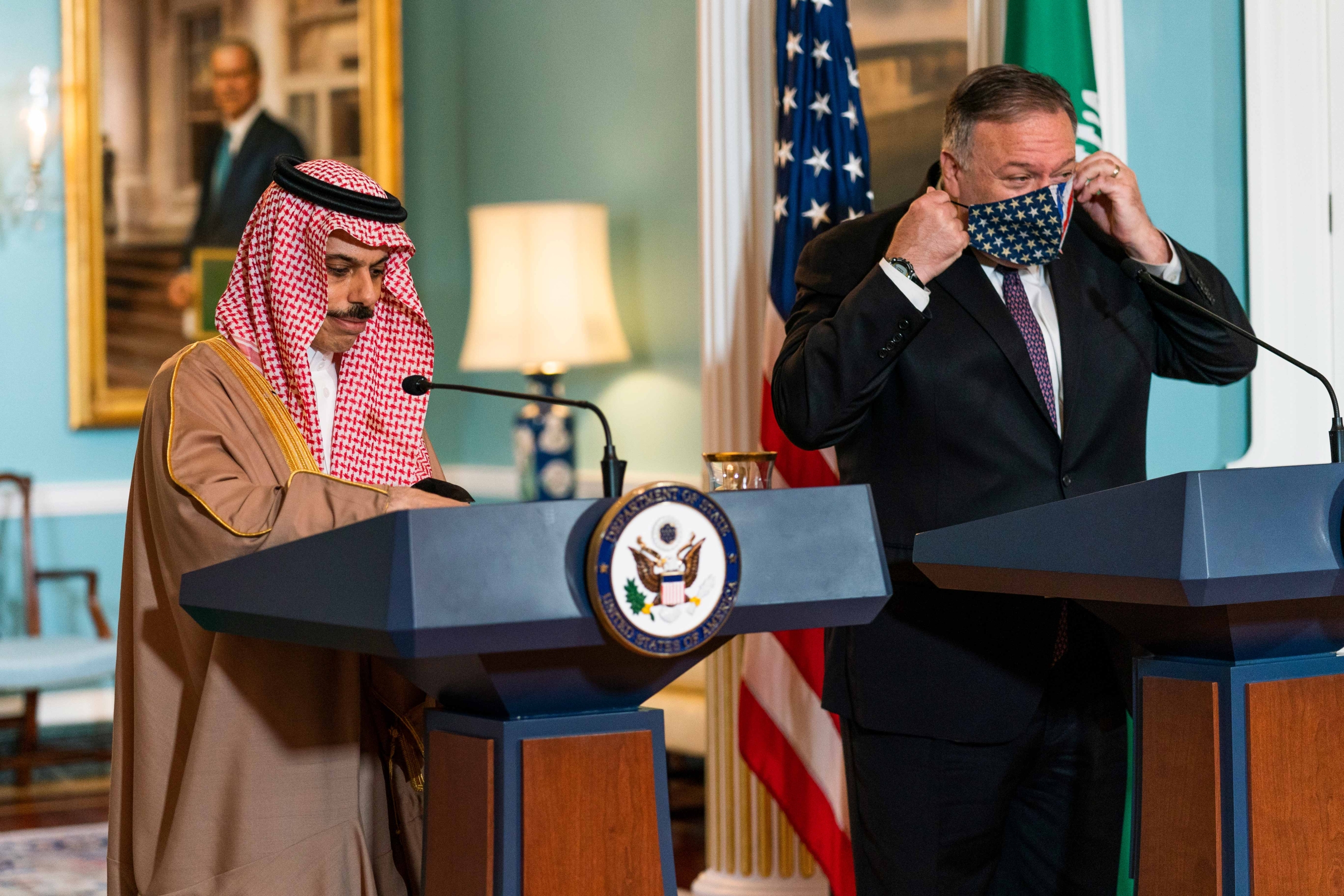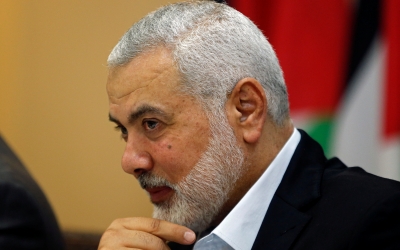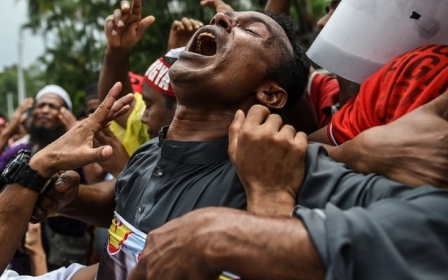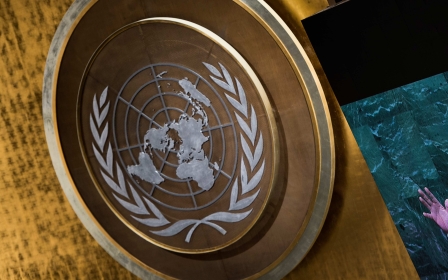Pompeo encourages Saudi Arabia to normalise ties with Israel

US Secretary of State Mike Pompeo urged Saudi Arabia to normalise relations with Israel and said Washington supports a "robust programme of arms sales" to Riyadh.
Speaking alongside Saudi Foreign Minister Prince Faisal bin Farhan al-Saud at the State Department on Wednesday, Pompeo said he hoped the kingdom would follow in the footsteps of the United Arab Emirates and Bahrain and normalise diplomatic ties with Israel.
"We hope Saudi Arabia will consider normalising its relationships as well, and we want to thank them for the assistance they've had in the success of the Abraham Accords so far," Pompeo said, adding he hopes Riyadh will encourage Palestinian leaders or the Palestinian Authority to "return to dialogue and negotiation with Israel".
However, during closed-door talks with the EU on Monday, Farhan al-Saud said that there would be no recognition of Israel from Saudi Arabia without a return to Israel-Palestinian talks.
But he added that the kingdom would not stand in the way of other Arab states recognising Israel.
New MEE newsletter: Jerusalem Dispatch
Sign up to get the latest insights and analysis on Israel-Palestine, alongside Turkey Unpacked and other MEE newsletters
US President Donald Trump has portrayed the joint Israeli, Emirati and Bahraini deals - also known as the Abraham Accords - as being part of his broader initiative for Middle East peace.
Trump's controversial plan for the region, which was unveiled in January, gave a US blessing to Israeli annexation of vast swathes of the West Bank, including settlements - offering only fragmented territory for the creation of a Palestinian state with no sovereignty over its borders and airspace.
Israel reportedly agreed to delay annexation under its normalisation deal with the UAE, something Emirati officials have cited in response to Arab and Muslim criticism.
Still, shortly after the deal between Israel and the UAE was announced, Israeli Prime Minister Benjamin Netanyahu said the agreement did not nullify the provisions of Trump's contested "deal of the century" plan.
Palestinian leadership and Hamas have condemned the deals and quit the rotating presidency of the Arab League in protest against the organisation's failure to take a stand against normalisation.
The Gulf agreements broke with years of Arab League policy on the Israeli occupation, which made its resolution a precondition for normalising ties with Israel.
Saudi Arabia has stated that it abides by the 2002 Arab Peace Initiative, which offers to normalise ties with Israel in return for a statehood deal with the Palestinians and full Israeli withdrawal from territory captured in 1967.
Trump says he expects five additional Arab nations to normalise ties with Israel, and that Riyadh will join "at the right time".
Focus on Iran
Last week, top Saudi royal Prince Bandar bin Sultan bin Abdulaziz, a former Saudi intelligence chief and ambassador to the US, issued a stinging attack on Palestinian leaders, accusing them of "betrayal".
"The Palestinian cause is a just cause but its advocates are failures, and the Israeli cause is unjust but its advocates have proven to be successful," he said in an interview with the Saudi Al-Arabiya TV channel.
Bandar was coy on normalisation, saying: "We are at a stage in which rather than being concerned with how to face the Israeli challenges in order to serve the Palestinian cause, we have to pay attention to our national security and interests."
During Wednesday's briefing, Pompeo also invoked Saudi Arabia's regional rival Iran, reiterating the US's long-standing position that Tehran is a force for evil in the region.
Washington and Riyadh have blamed Tehran for drone attacks in September 2019 that targeted oil firm Saudi Aramco, causing a six percent production cut in global output and a 20 percent spike in crude prices.
"The United States supports a robust programme of arm sales to Saudi Arabia, a line of effort that helps the Kingdom protect its citizens and sustains American jobs," Pompeo said.
Meanwhile, the Saudi Foreign Minister said that Iran "continues to provide financial and material support to terrorist groups, including in Yemen where the Houthis have launched more than 300 Iranian-made ballistic missiles and drones towards the Kingdom".
Tehran says it supports the Yemeni rebels diplomatically and politically but has repeatedly denied providing them with any military aid.
Middle East Eye delivers independent and unrivalled coverage and analysis of the Middle East, North Africa and beyond. To learn more about republishing this content and the associated fees, please fill out this form. More about MEE can be found here.





